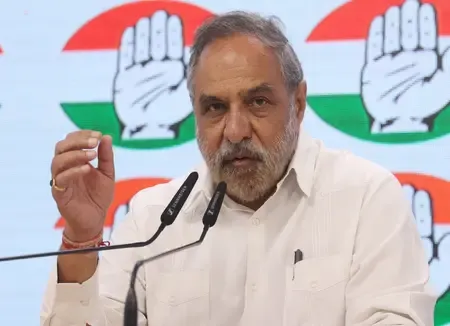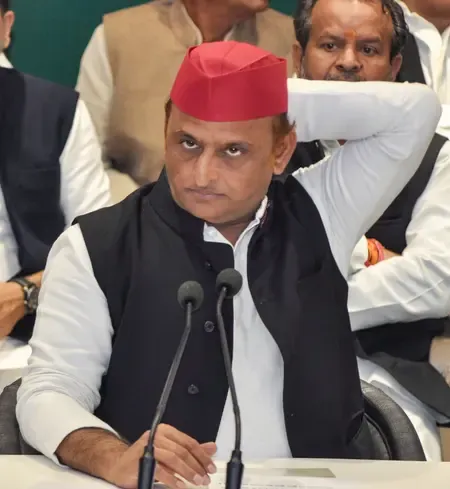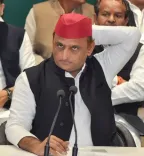Why Has Congress Veteran Sharma Resigned as Foreign Affairs Chief?

Synopsis
Key Takeaways
- Anand Sharma resigns from Congress Foreign Affairs Department.
- Calls for generational change within the party leadership.
- Sharma's departure signals potential shifts in Congress's foreign policy strategy.
- Internal dissent regarding Operation Sindoor raises questions about party unity.
- Sharma's legacy includes pivotal contributions to India's international relations.
New Delhi, Aug 10 (NationPress) In a significant gesture, senior Congress leader Anand Sharma has announced his resignation as the head of the party’s Foreign Affairs Department, marking the end of a decade-long influence that significantly shaped the party’s international relations.
His resignation was formally presented to Congress president Mallikarjun Kharge, framed as a move to promote generational transformation within the department.
However, the timing and implications hint at more profound challenges within the party’s strategic framework.
Sharma, a key member of the Congress Working Committee and an esteemed authority on international diplomacy, emphasized the necessity to bring in younger leaders “of potential and promise” to maintain continuity.
His departure coincides with internal dissent regarding the party’s response to Operation Sindoor — a military initiative following the Pahalgam terror attack — and the ensuing diplomatic fallout.
Sharma was part of all-party delegations sent to represent India’s stance after Sindoor, alongside fellow Congress members Manish Tewari and Shashi Tharoor.
Interestingly, during the parliamentary debate on the operation, none of the three were granted the opportunity to speak. Reports indicate that Tharoor chose not to speak, preferring not to contradict his previous support for the government's actions abroad.
Tewari, meanwhile, had formally asked to contribute but was ignored. His cryptic post on X—quoting the patriotic line “Bharat ka rehne waala hoon, Bharat ki baat sunata hoon”—was perceived as a subtle protest against the party’s decisions.
His public endorsement of Sharma’s diplomatic skills further highlighted the widening gap between the party’s leadership and its seasoned foreign policy experts.
Sharma also openly criticized the Congress party’s support for a nationwide caste census, deeming it a departure from its core principles.
In a letter to Congress President Mallikarjun Kharge dated March 21, 2024, Sharma cautioned that this stance could be misinterpreted as undermining the legacies of Indira Gandhi and Rajiv Gandhi, both of whom resisted caste-based politics.
“While caste is a reality in Indian society, the Congress has never engaged in or endorsed identity politics. This is harmful to democracy in our diverse society,” he wrote.
Sharma’s resignation from the Foreign Affairs Department feels less like a standard transition and more like a quiet lament for a legacy that might be at risk.
Having guided the party’s international engagements for nearly four decades—from anti-apartheid solidarity movements to globally recognized conferences under Sonia Gandhi’s leadership—Sharma has represented the Congress’s diplomatic conscience.
His call for a committee reconstitution, coupled with the reminder that it hasn’t been refreshed since 2018, suggests a strategic drift and institutional neglect.
Sharma’s resignation follows his earlier departure from the Himachal Pradesh steering committee, indicating a broader reassessment of his role within the party.
His legacy is marked by critical contributions to the Indo-US nuclear agreement, the India-Africa partnership, and the establishment of Congress’s global political networks.
Although the Congress asserts that Sharma remains a valued party member, his exit from a crucial strategic position—amid the sidelining of other foreign affairs veterans—raises concerns about the consistency of the party’s international messaging and its internal decision-making culture.
In a time of assertive diplomacy and global realignments, the Congress’s ability to align national interests with party politics may depend on how it engages with voices like Sharma’s—not as remnants of the past, but as valuable assets for the future.









